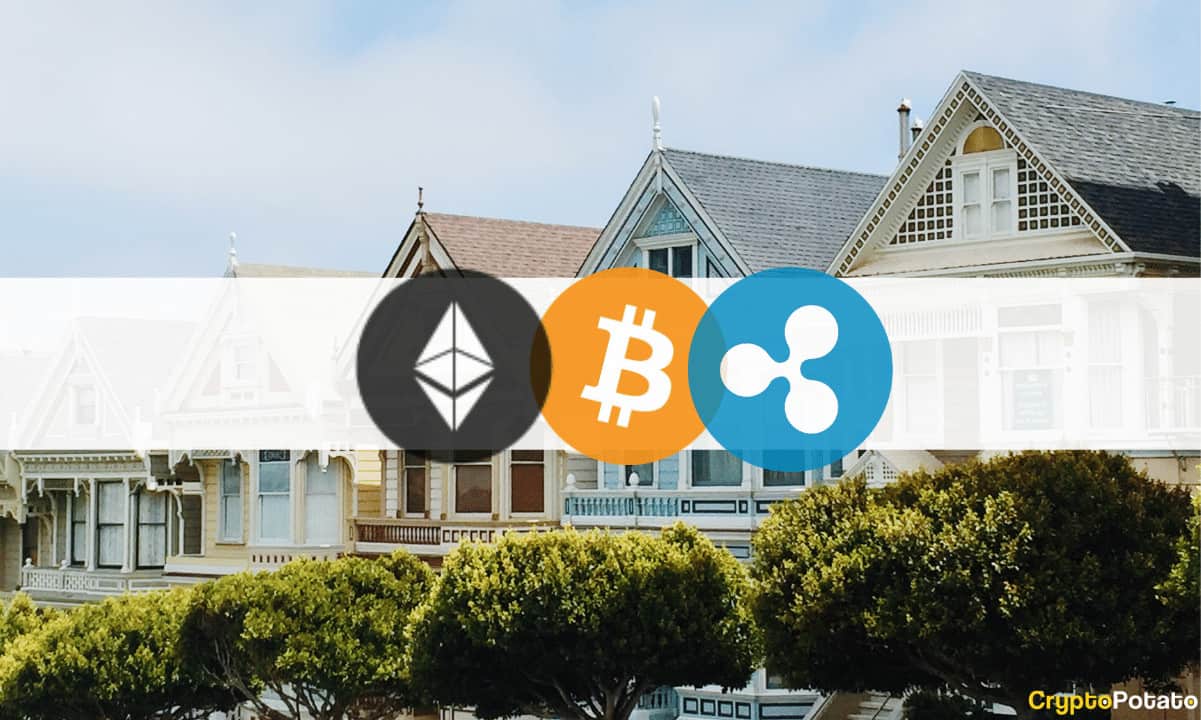In the report focusing on how new tech could change the housing market, Citigroup explored crypto-backed mortgages and the rise of digital real estate.
Wall Street giant Citigroup released a new report on cryptos-backed mortgages as an alternative for financing properties. The document laid out the benefits of such a financial innovation and the potential risks rooted in the high volatility of asset prices.
Titled “Home of the Future: PropTech — Towards a Frictionless Housing Market,” the report also dived into the future of digital real estate as encapsulated by the Metaverse-oriented project The Sandbox.
According to Citigroup, crypto-backed mortgages represent an opportunity that simplifies the time-consuming process that requires borrowers to provide documents such as tax returns and bank statements to secure a loan.
Mortgages backed by cryptocurrencies would allow investors to utilize their investment gains to get a mortgage without incurring the tax event and loss of further upside if they were to liquidate digital assets into cash.
The report indicated that if the crypto collateral declines in value, for instance, the borrower would be subject to margin calls when the asset has dropped below a certain threshold. In this way, the borrower is at relatively high risk of having his asset liquidated during violent market pullbacks.
In return, the borrower is eligible to receive a loan that does not incur capital gains while remaining exposed to upside potentials in the crypto portfolio.
For adjustable-rate mortgages, a set of financial analyses is in place to determine the capacity to afford the payment at the interest rate ceiling and examine the security of such a loan based on extensive background checks. However, these measures are not entirely in place regarding cryptocurrencies, adding additional risk to such a financial product.
“With this requirement and awareness of crypto’s high volatility in mind, it could be challenging to make a primary ability-torepay determination over the life of the loan based off crypto reserves. This issue may be compounded if the payment rises in the event of a downturn in cryptocurrency prices.”
In addition to purchasing physical property through crypto loans, the report commented on the potential ahead of “digital real estate” in the metaverse. The investment bank giant, in particular, views The Sandbox as an opportunity for monetizing virtual real estates, as the project has witnessed exponential growth in the past year:
“Average LAND prices exploded from ~$100/LAND in January 2021 to ~$15,000/LAND by December. From November 2021 to January 2022, an average of 8,000 LAND transactions occurred per month at ~$13,000/LAND, with individual LANDs trading as high as $200,000.”
In the field of virtual properties, The LAND deed is held as collateral by the loan provider as an NFT. Only upon the full repayment of the loan the NFT would be transferred to the LAND owner as proof of ownership.
Due to the nascent nature of the virtual properties linked directly to volatile cryptocurrencies, the field fails to attract sufficient corporate interest as many of the purchasers of LANDs are simply speculating on the platform’s future growth, which may lead to the properties appreciating in value.
Jay Zhuang is a journalist and artist with a background in digital art curation. He started writing about cryptocurrency in 2020 and began contributing to DAOs in 2021. He can be reached on Twitter.
Sign-up FREE to receive our extended weekly market update and coin analysis report

